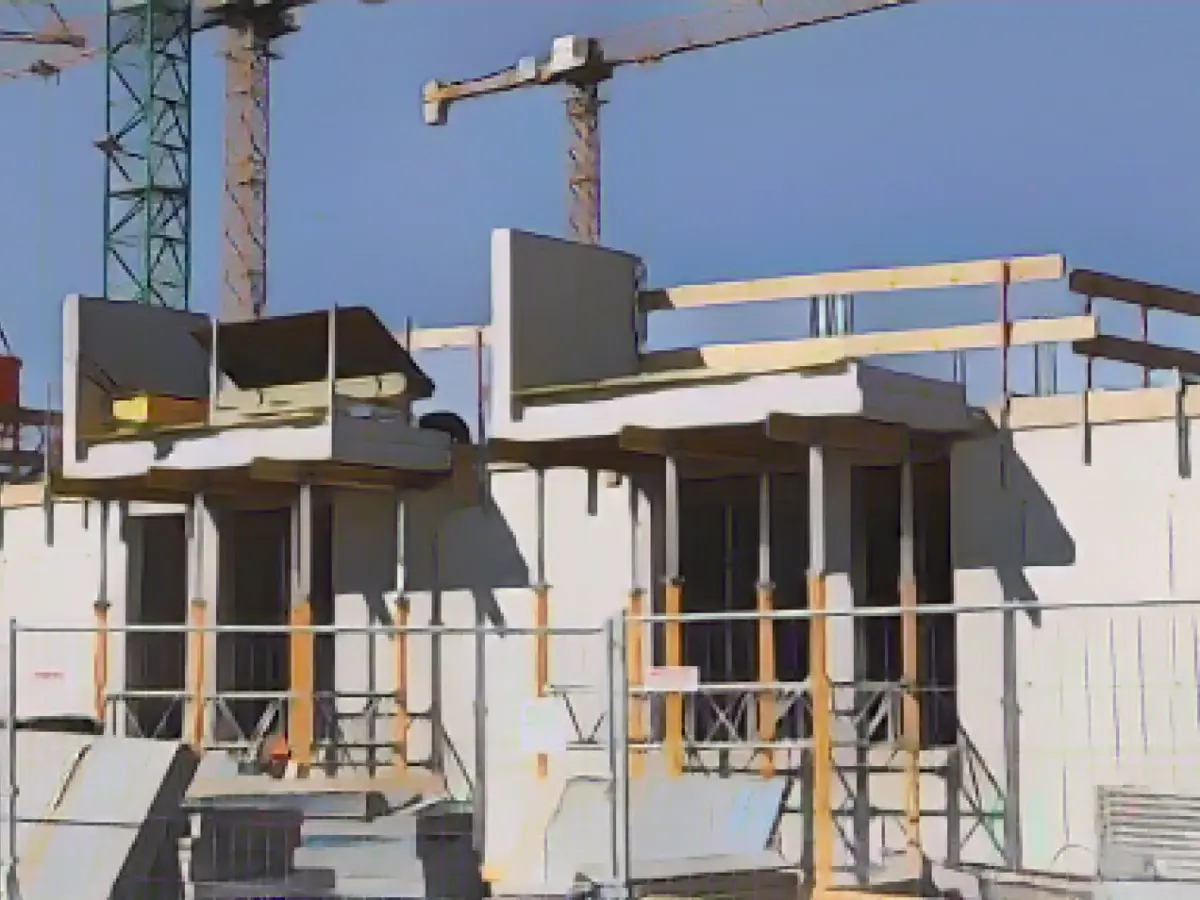The Thuringian Housing Industry Association is fiercely lobbying for at least 150 million euros each year from the government, claiming this is necessary to bolster new housing construction and refurbishment efforts. The current climate of soaring costs and interest rates is causing concern, with Frank Emrich, the association's director, warning that fewer homes might be constructed or modernized without this financial assistance.
Emrich emphasized that the struggling construction industry could benefit from this funding, combined with interest subsidies from the federal government. With the association predominantly representing municipal and cooperative housing companies in Thuringia, Emrich expressed his concern that the medium-sized regional construction industry is teetering on the brink of collapse.
Given the dire forecasts, only about two-thirds of the new builds planned for 2024 may be feasible, with this number potentially plummeting to 44% by 2025. Unfortunately, approximately one-third of planned modernization projects face potential reductions in quality. As a result, the housing sector urgently requires investment security through simplified and clearer rules, according to Emrich.
Incorporating government funding into the housing industry's efforts can help mitigate these challenges in various ways:
- Sustainable Project Financing: Investments from the European Investment Bank can support projects that enhance energy efficiency, renewable energy, and sustainable building practices. In Thuringia, for instance, the EIB Group contributed €400 million to modernize and digitalize the electricity grid, enabling the integration of more local solar and wind energy producers.
- Municipal Support: Affordable housing and ecological settlements can be developed with funding from government initiatives. Access to sustainable and affordable housing is increasingly important, with initiatives like the sustainable housing project in Bremen demonstrating how prefabricated modules can make construction more cost-effective and environmentally friendly.
- Innovation and Technology: Public funding can promote the use of green building materials and technologies, like timber frame construction and renewable energy integration. Projects like the solar power-integrated housing estate in Bremen showcase the potential of sustainable construction techniques and technologies.
- Community Development: Integrated living and working communities are crucial for supporting people with learning and thinking impairments, as demonstrated by the SOS Village Community Grimmen-Hohenwieden in Thuringia.
- Grid Modernization: Government loans like the €400 million provided to TEAG can upgrade and digitalize the electricity grid, helping integrate more renewable energy sources and improve the region's energy security and stability.
With government support, the Thuringian housing industry has the opportunity to combat rising costs and interest rates, build more affordable and sustainable homes, and work towards climate neutrality goals.







